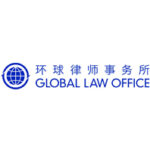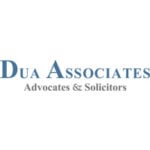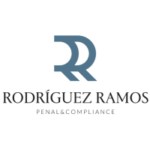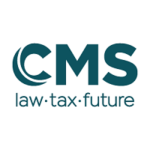-
What is the legal framework (legislation/regulations) governing bribery and corruption in your jurisdiction?
The primary piece of legislation governing bribery and corruption in Hong Kong is the Prevention of Bribery Ordinance (Chapter 201) (POBO), which targets both supply and demand side bribery in the private and public sectors.
In addition, the Independent Commission Against Corruption Ordinance (Chapter 204) (ICACO) establishes the Independent Commission Against Corruption (ICAC), Hong Kong’s anti-corruption agency, and sets out its responsibilities and powers.
Both are supplemented by subsidiary legislation with regard to certain provisions.
-
Which authorities have jurisdiction to investigate and prosecute bribery and corruption in your jurisdiction?
The ICAC investigates, and the Department of Justice prosecutes, bribery and corruption in Hong Kong.
-
How is ‘bribery’ or ‘corruption’ (or any equivalent) defined?
In general, offering, soliciting or accepting a bribe (referred to as an ‘advantage’ under the POBO) as an inducement to, reward for, or otherwise on account of someone (not) doing an act or showing (dis)favour constitutes an offence, subject to certain defences and exceptions.
Under the POBO, an offence is committed when the offer is made, the solicitation takes place, or the acceptance is given. It is not necessary to show that the advantage was actually provided to the recipient. Bribery through intermediaries or third parties, as well as conspiracy to commit a POBO offence, is also prohibited.
The term ‘advantage’ encompasses all kinds of benefits, however trivial (such as money, gifts, services, office or employment, contracts, release of liability, and protection from penalty), but not ‘entertainment’. ‘Entertainment’ as defined under the POBO means the provision of food or drink for consumption on the occasion when it is provided, and of any other entertainment connected with or provided at the same time as such provision of food or drink.
A direct or specific benefit in return for a bribe (ie, a ‘quid pro quo’) is not required under Hong Kong’s bribery laws. Bribery may comprise advantages offered to build a store of goodwill to provide the basis for future corrupt demands. This is sometimes referred to as the ‘sweetening doctrine’.
-
Does the law distinguish between bribery of a public official and bribery of private persons? If so, how is 'public official' defined? Is a distinction made between a public official and a foreign public official? Are there different definitions for bribery of a public official and bribery of a private person?
Public sector bribery offences
There are a number of public sector bribery offences under the POBO. Engaging in the following acts without lawful authority or reasonable excuse constitutes an offence:
- Offering an advantage to a public servant (or, as a public servant, soliciting or accepting an advantage) as an inducement to, reward for, or otherwise on account of the public servant (not) performing or influencing the performance of any act in his/her capacity as a public servant, or influencing any business transaction between any person and a public body (similar offences exist in relation to the Chief Executive of Hong Kong) (section 4, POBO);
- Offering an advantage to a public servant (or, as a public servant, soliciting or accepting an advantage) as an inducement to, reward for, or otherwise on account of the public servant giving assistance in connection with a contract with a public body (similar offences exist in relation to the Chief Executive of Hong Kong) (section 5, POBO);
- Offering an advantage to any person (or soliciting or accepting an advantage) as an inducement to, reward for, or otherwise on account of the withdrawal of a tender (or refraining from the making of a tender) for a contract with a public body, or refraining from bidding at an auction conducted by or on behalf of a public body (sections 6 and 7, POBO); and
- Offering an advantage to a public servant while having dealings with the relevant public body, or to a prescribed officer (a type of public servant) while having dealings with the relevant government department (section 8, POBO).
Unlike the above offences, some offences are not cured by lawful authority and/or reasonable excuse. These concern public sector offenders only:
- Section 3 of the POBO prohibits the solicitation or acceptance of any advantage by a prescribed officer without the general or special permission of the Chief Executive of Hong Kong; and
- Under section 10 of the POBO, it is an offence for a prescribed officer or the Chief Executive to maintain a standard of living above that which is commensurate with his/her present or past official emoluments, or to be in control of pecuniary resources or property disproportionate to his/her present or past official emoluments, without a satisfactory explanation.
‘Public servants’ are defined under the POBO to include:
- ‘Prescribed officers’ (any person holding an office of emolument under the government and certain others including principal officials of the government appointed under the Basic Law, certain persons appointed by the Hong Kong Monetary Authority, the Chairman of the Public Service Commission, ICAC staff, and judicial officers); and
- Employees and certain members and individuals of public bodies (‘public bodies’ are broadly defined and include, among others, the government and its executive, legislative and district councils, and more than 140 entities listed under Schedules 1 and 2 of the POBO, some of which are private companies that perform public functions). Employees of government-owned entities are not considered “public servants” unless such entities are listed in Schedules 1 and 2 of the POBO or otherwise fall within the definition of “public body” under the POBO.
Private sector bribery offences
These are found in section 9 of the POBO and address the bribery of “agents”. In the business context, the principal is regarded as the employer, and the agent, the employee. Section 9 is intended to prohibit conduct that may undermine the integrity of the principal-agent relationship, in particular the receipt by an agent of advantages from third parties without the principal’s knowledge, and secret attempts by third parties to corrupt or influence an agent.
‘Agent’ is defined broadly in the POBO to include ‘… any person employed by or acting for another’. Since ‘agent’ also includes a public servant, section 9 also applies to the principal-agent relationship between the government and a public servant.
Offences include, without lawful authority or reasonable excuse, offering an advantage to an agent (or, as an agent, soliciting or accepting an advantage), as an inducement to, reward for, or otherwise on account of the agent (not) performing an act, or (dis)favouring any person, in relation to his/her principal’s affairs or business.
Foreign public officials
Foreign public officials are not expressly addressed in the POBO, but the definition of ‘agent’ under section 9 of the POBO is broad enough to cover foreign public officials. Provided that Hong Kong jurisdiction applies, the elements of the law prohibiting bribery of a foreign public official under section 9 are the same as those for a domestic public official.
-
Who may be held liable for bribery? Only individuals, or also corporate entities?
The definition of ‘person’ in Hong Kong legislation includes both individuals and corporate entities. As such, corporate entities can technically be found liable for committing bribery offences. In practice, however, almost all prosecutions target individuals, whereas corporate entities are more likely to be subject to regulatory action or investigatory steps (such as search and seizure notices). This is because the offence of bribery requires human actors, and it is difficult to establish corporate liability for bribery which, based on common law principles, requires actions by senior management that represent the company’s ‘directing mind and will’.
There is no separate corporate bribery offence which provides for corporate criminal liability in the case of bribery by employees or other associated persons.
-
What are the civil consequences of bribery and corruption offences in your jurisdiction?
The POBO contains provisions for restitution and confiscation of unlawfully obtained property. In addition, regulated persons may be subject to civil or disciplinary action by their regulatory or professional bodies as a result of involvement in bribery.
-
What are the criminal consequences of bribery and corruption offences in your jurisdiction?
The maximum levels of punishment for the bribery offences under the POBO are:
- Section 10 offence (maintaining a disproportionate standard of living or being in control of disproportionate pecuniary resources or property without a satisfactory explanation): a fine of HKD 1 million and imprisonment for 10 years;
- Section 5 offence (offering, soliciting or accepting an advantage to assist/influence a contract with a public body) and section 6 offence (offering, soliciting or accepting an advantage in relation to the withdrawal of a tender for a public body): a fine of HKD 500,000 and imprisonment for ten years;
- Section 3 offence (soliciting or accepting an advantage without the Chief Executive’s general or special permission): a fine of HKD 100,000 and imprisonment for one year;
- Other bribery offences: a fine of HKD 500,000 and imprisonment for seven years.
The Hong Kong courts have advocated the need for deterrent sentences, which means that immediate custodial sentences can be expected in most cases.
A court can also order a convicted person to pay a person, public body or the government the amount or value of any advantage received by the convicted person (or part thereof).
In respect of the offence of a prescribed officer being in control of disproportionate pecuniary resources or property without a satisfactory explanation (under section 10(1)(b) of the POBO), a court may order the convicted person to pay the government a sum not exceeding the value of the unexplained resources or property. Where a person is convicted on indictment of this offence, the court may order the confiscation of any pecuniary resources or property not exceeding the value of the unexplained resources or property.
In addition, if it is in the public interest to do so, the court may order that a person convicted of the above offences be prohibited from taking or continuing employment (whether paid or unpaid) for up to seven years. The POBO also provides that a person will, by reason of such conviction, be disqualified for a period of five years from being elected or appointed as a member of the Legislative Council, Executive Council and certain other public bodies.
-
Does the law place any restrictions on hospitality, travel and/or entertainment expenses? Are there specific regulations restricting such expenses for foreign public officials? Are there specific monetary limits for such expenses?
As mentioned under Question 3 above, the term ‘advantage’ under the POBO does not include ‘entertainment’ (ie, the provision of food or drink for consumption on the occasion when it is provided, and of any other entertainment connected with or provided at the same time as such provision of food or drink).
Hospitality, travel and entertainment falling outside the above ‘entertainment’ exception may constitute an ‘advantage’ under the POBO.
The POBO does not provide for de minimis exceptions. However, the value of the benefit will be one factor when deciding whether the benefit constitutes an unlawful advantage. In determining the legality of a benefit, the following factors will be taken into account:
- The purpose of the benefit;
- The value and frequency of the benefit (lavish or extravagant benefits are red flags);
- Whether the benefit is equally offered to others or just the recipient in question;
- The recipient’s position and role; and
- The relationship between the offeror and the recipient – in particular, if there are official dealings between them.
Bribery in relation to foreign public officials is not expressly addressed in the POBO, but the definition of “agent” under section 9 of the POBO is broad enough to cover foreign public officials.
-
Are political contributions regulated? If so, please provide details.
The Elections (Corrupt and Illegal Conduct) Ordinance (Chapter 554) (ECICO) aims to ensure that public elections are conducted fairly, openly and honestly and are free from corrupt and illegal conduct. Among other things, it requires candidates to properly account for the expenditure of money at elections and the soliciting and receipt of election donations.
An election donation includes any money, goods or service given or provided to (or in respect of) a candidate for the purpose of promoting the election of the candidate or prejudicing the election of other candidates. An election donation is not an ‘advantage’ under the POBO or the ECICO as long as particulars of the donation are provided in an election return that has been lodged with the appropriate authority in accordance with the ECICO.
Under the ECICO, each candidate is required to lodge with the appropriate authority an election return setting out his/her election expenses and all election donations received within the specified time period. If the value of the election donation is more than HKD 1,000, the candidate must issue a receipt to the donor with the required particulars. The ECICO also includes provisions as to how a candidate must handle certain election donations.
A candidate or other person is considered to have engaged in corrupt conduct at an election (and committed an offence under the ECICO) if he or she uses election donations for a purpose other than meeting (or contributing towards meeting) the candidate’s election expenses, or a purpose other than promoting the election of the candidate or prejudicing the election of another candidate.
The ECICO also criminalises various bribery-related conduct associated with public elections, such as bribing of candidates or prospective candidates, bribing of electors, and withdrawing an election petition or election appeal for a bribe.
-
Are facilitation payments prohibited or regulated? If not, what is the general approach to such payments?
The bribery offences in the POBO cover the making of facilitation payments. They expressly prohibit offering, accepting or soliciting an advantage to ‘expedite’ the performance of a public function.
-
Are there any defences available to the bribery and corruption offences in your jurisdiction?
As mentioned under Question 4 above, with the exception of the section 3 and section 10 offences, the public and private sector bribery offences generally allow for an affirmative defence where the accused is acting with ‘lawful authority or reasonable excuse’. These are not defined in the POBO and the burden is on the accused to prove them on the balance of probabilities.
The lawful authority defence requires a positive rule of law that expressly or impliedly authorises a person to act in a way that would otherwise amount to an offence under the POBO. The principal source of lawful authority is the POBO itself. For example, in respect of the section 4 and section 9 offences, the POBO specifically provides that if a public servant other than a prescribed officer or an agent solicits or accepts an advantage with the permission of the relevant public body or principal, neither he/she nor the person who offered the advantage will be guilty of an offence. The permission must be in writing (in the case of a section 4 offence) and be given before the advantage is offered, solicited or accepted (or if not, must be applied for and given as soon as reasonably possible after such offer or acceptance).
Reasonable excuse has been narrowly construed by the courts and is of very limited application in practice.
The POBO specifically states that it is not a defence to show that an advantage is customary in any profession, trade, vocation or calling.
-
Are compliance programs a mitigating factor to reduce/eliminate liability for bribery and corruption offences in your jurisdiction?
There is no law in Hong Kong that specifically provides that compliance programmes are a defence or mitigating factor for bribery offences. It will depend on the specific circumstances of the case whether the compliance programme in question can eliminate or reduce liability. In practice, however, corporate entities are rarely prosecuted in Hong Kong. See Question 5 above.
-
Has the government published any guidance advising how to comply with anti-bribery and corruption laws in your jurisdiction?
In relation to the public sector, the Civil Service Code states that civil servants should not:
- solicit or accept, directly or indirectly, any advantage or gift which would (or might reasonably be seen to) influence the discharge of their duties and responsibilities; or
- place themselves under any financial or other obligation to outside individuals or organisations that might seek to influence them in the performance of their official duties.
In addition to the Acceptance of Advantages (Chief Executive’s Permission) Notice 2010 which relates specifically to the POBO section 3 offence applicable to prescribed officers, the Hong Kong Civil Service Bureau has published a number of civil service regulations and circulars relating to conduct and integrity of civil servants, including to those regarding acceptance of advantages offered to an officer in his/her private capacity and official capacity, acceptance of entertainment, gifts and donations to a department, sponsored visits, and retirement gifts.
The Code for Officials under the Political Appointment System, which applies to politically appointed officials, contains guidance relating to similar issues, including acceptance of advantages and entertainment, register of advantages, and sponsored visits.
In addition, the ICAC provides a variety of online resources, reference materials, as well as training programmes for both the public and private sectors.
-
Are mechanisms such as Deferred Prosecution Agreements (DPAs) or Non-Prosecution Agreements (NPAs) available for bribery and corruption offences in your jurisdiction?
There are no formal mechanisms for reaching DPAs or NPAs in Hong Kong. See Question 16 below in relation to potential immunity from prosecution or reduction in sentence following the provision of evidence/information to assist an investigation or prosecution.
-
Does the law in your jurisdiction provide protection to whistle-blowers? Do the authorities in your jurisdiction offer any incentives or rewards to whistle-blowers?
There is no general whistle-blowing legislation in Hong Kong. However, there are provisions in various legislation that offer some protection to whistle-blowers or informers. For example:
- Under the Employment Ordinance, an employer is prohibited from terminating (or threatening to terminate) the employment of an employee, and from discriminating against an employee in any way, as a result of the employee giving evidence in proceedings for the enforcement of the Ordinance or relating to a work accident, or giving information to a public officer in any inquiry made by the officer for such purposes. Public officers also have confidentiality obligations in relation to the name and identity of a person who has made a complaint alleging a contravention of the Ordinance.
- Under various anti-discrimination legislation, it is unlawful for a person (discriminator) to discriminate against another person (victim) as a result of the victim bringing proceedings against the discriminator under the legislation, giving evidence or information in connection with proceedings brought against the discriminator under the legislation, or alleging that the discriminator or any other person has committed an act which contravenes the legislation.
- Under the POBO, the name and address of an informer in respect of an offence under the Ordinance are required to be kept confidential and should not be admitted in evidence in any civil and criminal proceedings.
The ICAC does not generally offer incentives or rewards to whistle-blowers.
-
Does the law in your jurisdiction enable individual wrongdoers to reach agreement with prosecutors to provide evidence/information to assist an investigation or prosecution, in return for e.g. immunity or a reduced sentence?
According to the Prosecution Code, in certain exceptional circumstances a wrongdoer who provides evidence/information to assist an investigation or prosecution (an informer) may be granted immunity from prosecution. Ordinarily, the evidence to be given by the informer should be considered necessary to secure the conviction of others and not be available elsewhere.
The factors that influence a prosecutor’s decision to grant immunity include:
- the nature of the evidence the informer may be able to give and its significance to the prosecution of the case;
- the antecedents of the informer;
- the informer’s perceived credibility (including the fullness of his or her disclosure of facts and matters within his or her knowledge) and any discernible motive for not telling the whole truth (including the receipt, promise or expectation of a benefit);
- the informer’s level of involvement in the offence being prosecuted (which should generally be lower than that of the offender being prosecuted); and
- the presence of any supporting evidence.
Separately, a convicted person may receive a reduction to his/her sentence to reflect his/her cooperation with or provision of evidence/information to the prosecution. This is however part of the usual sentencing process following trial or a guilty plea, rather than a matter that is agreed with the prosecutor in advance.
-
How common are government authority investigations into allegations of bribery? How effective are they in leading to prosecutions of individuals and corporates?
The ICAC is a persistent and highly effective anti-corruption agency. In 2023, it initiated investigation on 1,508 new cases (excluding cases under the ECICO), and completed the investigation of 1,503 cases (including cases that were brought forward from previous years). 204 persons were prosecuted, 54 persons were convicted and 23 persons received cautions for minor breaches. In 2024, 207 persons were prosecuted, 119 persons were convicted and 18 persons were cautioned for minor breaches. As indicated under Question 5, corporate entities are rarely prosecuted.
-
What are the recent and emerging trends in investigations and enforcement in your jurisdiction?
The ICAC has continued its zero-tolerance approach to tackling bribery and corruption, and will investigate cases even where the amount of the bribe is relatively small.
It has continued to work closely with other local regulators, in recent years entering into memoranda of understanding with the Securities and Futures Commission in 2019, the Financial Reporting Council (now known as the Accounting and Financial Reporting Council) in 2021, the Insurance Authority in 2023, and the Competition Commission in 2024 to enhance collaboration and enforcement capabilities. The memoranda provide for matters such as referral of cases, joint investigations, exchange and use of information, investigative assistance, and capacity building and training.
In April 2024, the ICAC and the Competition Commission conducted their first joint operation to neutralise a newly-rising syndicate engaging in suspected corruption and tender-rigging in relation to building maintenance. The ICAC arrested 20 persons, including the mastermind and backbone members of the syndicate. They included project contractors, project consultants, middlemen, members of incorporated owners, and members of property management companies. In the joint operation, searches were conducted by the ICAC and the Competition Commission at about 40 premises and to seize relevant evidence. The Competition Commission also exercised its compulsory powers to require relevant parties to produce documents and information. The two authorities conducted a further joint operation in August 2024 following an analysis of the evidence collected in the earlier operation. The ICAC further arrested five persons and interviewed 22 persons, and the two authorities conducted searches at around 20 premises. The companies and individuals concerned were alleged to have solicited and accepted bribes and engaged in anti-competitive activities in order to manipulate the tendering exercises of building maintenance projects. They were also alleged to have exaggerated contract sums and assisted associated contractors in securing contracts of the projects.
More recently, in an operation mounted in March 2025, the ICAC arrested 22 individuals, including 18 frontline bank employees who had allegedly accepted bribes totalling HK$2 million for assisting a mortgage loan referral intermediary to defraud banks of referrals fees in over 200 applications. 30 premises were searched during the operation. It was revealed that certain bank employees had allegedly included referral application forms in documents prepared for mortgage loan applicants for their signing, so as to defraud the banks concerned to release referral fees to the intermediary after the loans were granted to the applicants. The investigation also revealed that the signatures in some of the referral forms were suspected to have been forged.
-
Is there a process of judicial review for challenging government authority action and decisions? If so, please describe the key features of this process and remedy.
Public bodies, including government departments and enforcement agencies (such as the ICAC) are amenable to judicial review. Their actions may be challenged on grounds such as illegality, irrationality, procedural impropriety, and failure to take into account legitimate expectations. A judicial review application in Hong Kong is heard by the Court of First Instance.
-
Have there been any significant developments or reforms in this area in your jurisdiction over the past 12 months?
There were no significant developments or reforms in bribery and corruption laws in Hong Kong in the past 12 months.
-
Are there any planned or potential developments or reforms of bribery and anti-corruption laws in your jurisdiction?
At the time of writing, no amendments have been proposed to the POBO, the ICACO or the ECICO.
-
To which international anti-corruption conventions is your country party?
Hong Kong is a party (via China) to the United Nations Convention against Corruption 2003 and the United Nations Convention against Transnational Organised Crime 2000. Hong Kong is also a member of various international and regional anti-corruption bodies, such as the Asia Development Bank and the Organisation for Economic Co-operation and Development Anti-Corruption Initiative for Asia and the Pacific.
-
Do you have a concept of legal privilege in your jurisdiction which applies to lawyer-led investigations? If so, please provide details on the extent of that protection. Does it cover internal investigations carried out by in-house counsel?
The concept of legal professional privilege exists under Hong Kong law, and applies to external lawyers as well as in-house lawyers (as long as the in-house lawyer is acting in his/her capacity as a lawyer and not any other executive role he/she may have within the organisation).
Communications between an in-house lawyer and non-lawyer employees will be privileged if they are confidential and for the dominant purpose of either:
- seeking or giving legal advice (legal advice privilege); or
- advising on or obtaining evidence in relation to actual or contemplated litigation (litigation privilege).
Any investigations team within an organisation must therefore be set up carefully to ensure that a qualified lawyer controls and directs or otherwise oversees the process of investigation, so that the work products from the investigation are generated for one of the dominant purposes above.
Subject to limited exceptions, the POBO preserves the right to legal professional privilege in respect of information to be disclosed to the ICAC.
-
How much importance does your government place on tackling bribery and corruption? How do you think your jurisdiction’s approach to anti-bribery and corruption compares on an international scale?
The Hong Kong government places high importance on tackling bribery and corruption. The ICAC has adopted a zero-tolerance approach to tackling bribery and corruption, and will investigate cases even where the amount of the bribe is relatively small. In a survey conducted by the ICAC from 27 November 2023 to 24 February 2024, 98.9% of the respondents indicated that they had not personally come across corruption in the previous 12 months.
Hong Kong was placed 17th in the 2024 Corruption Perceptions Index, which ranked 180 countries and territories globally by their perceived levels of public sector corruption. It has ranked within the top 20 in the past ten years.
The ICAC is an active player in the international anti-corruption community, participating in the work of international and regional bodies, such as the International Association of Anti-Corruption Authorities (IAACA), the Asia-Pacific Economic Cooperation – Anti-Corruption and Transparency Experts’ Working Group, the Asia Development Bank and the Organisation for Economic Co-operation and Development Anti-Corruption Initiative for Asia and the Pacific, and the Economic Crime Agencies Network.
Mr Simon Peh was elected as President of the IAACA in January 2022, while he was the Commissioner of the ICAC. He had been actively involved in the work of the IAACA in the previous decade, including in his role as convenor of the IAACA training committee since 2017 where he implemented various training initiatives for the organisation. Mr Woo Ying-ming, the current Commissioner of the ICAC, took over as the President of the IAACA in September 2023 and has indicated that he would lead the IAACA in implementing the goals of the United Nations Convention against Corruption through three strategic priorities – (1) enhancing experience sharing among anti-corruption agencies, (2) expanding networking with international and regional anti-graft organisations, and (3) making good use of online platforms to connect graft fighters worldwide.
The ICAC collaborates with and offers capacity building programmes to anti-corruption agencies in other jurisdictions under the framework of the United Nations Convention against Corruption. In addition, it established the Hong Kong International Academy Against Corruption in 2024 to step up its efforts in organising structured professional training programmes with overseas counterparts.
-
Generally, how serious are corporate organisations in your country about preventing bribery and corruption?
The ICAC adopts a three-pronged approach in tackling corruption, namely, law enforcement, systemic prevention and community education. These three areas are handled by the following departments respectively:
- The Operations Department receives, considers and investigates alleged corruption offences.
- The Corruption Prevention Department examines the practices and procedures of government departments and public bodies to reduce corruption opportunities, provides advice on the formulation of new initiatives, policies and procedures, and conducts system-specific seminars and workshops to promote best practices in the public sector. It also offers corruption prevention advice and capacity building training to private organisations, as well as publishes sector-specific guides and self-learning tools.
- The Community Relations Department educates the public about aspects of corruption via various media platforms.
All of the above work to help foster an ethical culture in Hong Kong and encourage and incentivise corporate organisations and businesses to take bribery and corruption seriously.
-
What are the biggest challenges businesses face when investigating bribery and corruption issues?
The greatest challenges are around finding and securing evidence. With increased use of instant messaging apps (eg, WhatsApp and WeChat) and the use of personal devices, evidence is often beyond the reach of the employing entity. Further, strict data protection laws may limit the ability to collect and move data out of jurisdictions where investigations cover different jurisdictions. Restrictions are particularly strict in relation to data held in Mainland China, which means that the ability to collect and review data is often limited and will often have to be conducted onshore.
-
What are the biggest challenges enforcement agencies/regulators face when investigating and prosecuting cases of bribery and corruption in your jurisdiction? How have they sought to tackle these challenges? What do you consider will be their areas of focus/priority in the next 18 months?
As a result of the suspension of a number of bilateral agreements between Hong Kong and other jurisdictions relating to mutual legal assistance and surrender of fugitive offenders, the ICAC faces increased difficulties in the investigation of bribery and corruption cases that involve cross-border elements. A number of jurisdictions have suspended such agreements with Hong Kong in recent years, such as Australia, Canada, Finland, France, Germany, Ireland, the Netherlands, New Zealand, the UK and the US. These agreements provided for mutual assistance between the parties in matters such as taking of evidence, executing requests for search and seizure, producing documents, restraining and confiscating proceeds of crime, transferring persons to give assistance, effecting service of legal process, and surrendering of fugitive offenders.
The increase in the types of data and the locations in which they are stored (such as instant messaging apps with a “disappearing messages” function) make it more difficult to find and secure evidence. The ICAC’s frontline investigators are supported by the Computer Forensics Section which assists with retrieving, securing and analysing electronic data. According to the ICAC’s most recent annual report, the Computer Forensics Section processed about 250 terabytes of data (equivalent to around 250 million computer files) in 2023. The Section also maintains close liaison with other law enforcement agencies and the IT industry to keep abreast of the latest technological advancements and computer forensics. In addition, the ICAC has incorporated artificial intelligence in its detection and ancillary systems to keep pace with cutting-edge technology for continuous enhancement of investigation and work efficiency.
Rapid technological developments, such as those involving digital assets, add to the complexity of crimes and difficulties in evidence gathering. The ongoing reform by financial regulators to introduce regulatory frameworks for virtual asset related activities, such as the regime governing virtual asset trading platforms implemented in 2023 (which include record keeping requirements), will assist with this issue to some extent.
In addition, the lack of specific corporate bribery offences under Hong Kong law means that corporate entities can rarely be prosecuted (see Question 5 above). There are currently no legislative proposals to create standalone corporate bribery offences.
In the coming 18 months, we expect the ICAC to continue to adopt a zero-tolerance approach in tackling all forms of bribery and corruption, and to continue to enhance their technological tools to improve their investigation and data analysis capabilities.
-
How have authorities in your jurisdiction sought to address the challenges presented by the significant increase of electronic data in either investigations or prosecutions into bribery and corruption offences?
Please see Question 27 above.
-
What do you consider will be the most significant bribery and corruption-related challenges posed to businesses in your jurisdiction over the next 18 months?
Businesses may continue to face higher instances of bribery due to the lack of sustained economic recovery in the post-pandemic period, which has given rise to increased opportunities and incentives for bribery.
Managing data in compliance with increasingly strict and complex data protection laws will continue to be a challenge.
-
How would you improve the legal framework and process for preventing, investigating and prosecuting cases of bribery and corruption?
As discussed under Question 5 above, although corporate entities can technically be found liable under Hong Kong law for committing bribery offences, it is in practice difficult to establish corporate liability in the absence of specific corporate offences, such as those in the UK and Malaysia. The introduction of a corporate liability offence would make it easier to hold companies accountable for bribery committed by employees or agents on their behalf.
There is also room for enhancing the protection of whistle-blowers. As discussed under Question 15 above, there are only a few provisions in some legislation offering protection in limited circumstances. For example, under the Employment Ordinance, the protection is only triggered where a public officer has made an inquiry or proceedings are on foot for the enforcement of the Ordinance or a work accident. The introduction of a more comprehensive regime which provides for a broader range of circumstances under which whistle-blower protection is triggered (including the reporting of bribery and other misconduct within an organisation) may increase the willingness of whistle-blowers to come forward.
Hong Kong: Bribery & Corruption
This country-specific Q&A provides an overview of Bribery & Corruption laws and regulations applicable in Hong Kong.
-
What is the legal framework (legislation/regulations) governing bribery and corruption in your jurisdiction?
-
Which authorities have jurisdiction to investigate and prosecute bribery and corruption in your jurisdiction?
-
How is ‘bribery’ or ‘corruption’ (or any equivalent) defined?
-
Does the law distinguish between bribery of a public official and bribery of private persons? If so, how is 'public official' defined? Is a distinction made between a public official and a foreign public official? Are there different definitions for bribery of a public official and bribery of a private person?
-
Who may be held liable for bribery? Only individuals, or also corporate entities?
-
What are the civil consequences of bribery and corruption offences in your jurisdiction?
-
What are the criminal consequences of bribery and corruption offences in your jurisdiction?
-
Does the law place any restrictions on hospitality, travel and/or entertainment expenses? Are there specific regulations restricting such expenses for foreign public officials? Are there specific monetary limits for such expenses?
-
Are political contributions regulated? If so, please provide details.
-
Are facilitation payments prohibited or regulated? If not, what is the general approach to such payments?
-
Are there any defences available to the bribery and corruption offences in your jurisdiction?
-
Are compliance programs a mitigating factor to reduce/eliminate liability for bribery and corruption offences in your jurisdiction?
-
Has the government published any guidance advising how to comply with anti-bribery and corruption laws in your jurisdiction?
-
Are mechanisms such as Deferred Prosecution Agreements (DPAs) or Non-Prosecution Agreements (NPAs) available for bribery and corruption offences in your jurisdiction?
-
Does the law in your jurisdiction provide protection to whistle-blowers? Do the authorities in your jurisdiction offer any incentives or rewards to whistle-blowers?
-
Does the law in your jurisdiction enable individual wrongdoers to reach agreement with prosecutors to provide evidence/information to assist an investigation or prosecution, in return for e.g. immunity or a reduced sentence?
-
How common are government authority investigations into allegations of bribery? How effective are they in leading to prosecutions of individuals and corporates?
-
What are the recent and emerging trends in investigations and enforcement in your jurisdiction?
-
Is there a process of judicial review for challenging government authority action and decisions? If so, please describe the key features of this process and remedy.
-
Have there been any significant developments or reforms in this area in your jurisdiction over the past 12 months?
-
Are there any planned or potential developments or reforms of bribery and anti-corruption laws in your jurisdiction?
-
To which international anti-corruption conventions is your country party?
-
Do you have a concept of legal privilege in your jurisdiction which applies to lawyer-led investigations? If so, please provide details on the extent of that protection. Does it cover internal investigations carried out by in-house counsel?
-
How much importance does your government place on tackling bribery and corruption? How do you think your jurisdiction’s approach to anti-bribery and corruption compares on an international scale?
-
Generally, how serious are corporate organisations in your country about preventing bribery and corruption?
-
What are the biggest challenges businesses face when investigating bribery and corruption issues?
-
What are the biggest challenges enforcement agencies/regulators face when investigating and prosecuting cases of bribery and corruption in your jurisdiction? How have they sought to tackle these challenges? What do you consider will be their areas of focus/priority in the next 18 months?
-
How have authorities in your jurisdiction sought to address the challenges presented by the significant increase of electronic data in either investigations or prosecutions into bribery and corruption offences?
-
What do you consider will be the most significant bribery and corruption-related challenges posed to businesses in your jurisdiction over the next 18 months?
-
How would you improve the legal framework and process for preventing, investigating and prosecuting cases of bribery and corruption?



















